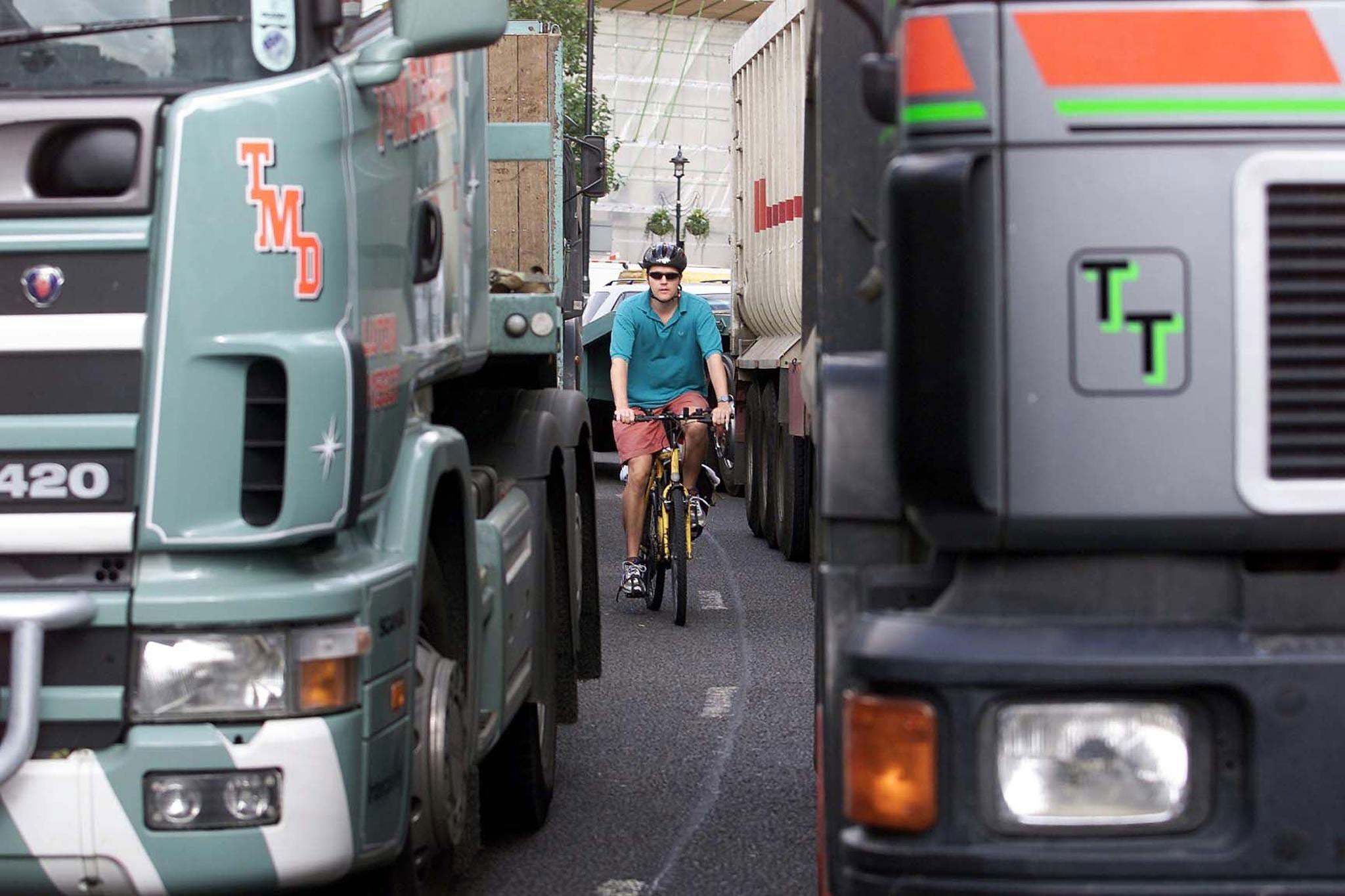Too much spin is slowing down the cycling revolution
Boris Johnson has announced plans to make roads safer - but we need action

As a hot September extends the commuting season for fair-weather riders, politicians on both sides of the Thames appear to be racing to prove their cycling credentials. On paper, Westminster and City Hall are on the money, proposing huge budgets and new laws to protect cyclists and turn our cities into two-wheel havens. Finally there seems to be a realisation that we all stand to benefit from the bike boom - but is it enough?
Today Boris Johnson, the London mayor, has announced plans to tackle the scourge of cyclists in all our cities - lorries. As his latest release points out, between 2008 and 2012, HGVs were involved in 53 per cent of London cyclist deaths despite making up only 4 per cent of the traffic. They have been involved in five of the seven cyclist deaths in London so far this year. The latest comes just today, with the death of a woman in Dulwich.
The size of this threat has been plain for years. The mayor’s solution: a consultation that will start at some point next year. He and the Transport Minister are proposing a penalty charge for lorries entering the capital without adequate safety measures. It doesn’t say exactly what these adequate measures are, when the consultation will run, nor when any such charge, if approved, would be introduced.
Other measures announced today include “a call for evidence about how driver training could change”, an appeal to the EU to regulate the design of new lorries, and an expansion of a scheme that encourages lorry drivers and cyclists to swap seats to understand better the challenge each faces. All worthwhile, but none of it concrete, nor likely to save lives or encourage new cyclists soon. Moreover, all of this is basic stuff that should and could have been implemented years ago.
In 2011 I took a seat alongside a lorry driver whose company had taken it upon itself to trial sensors designed to detect cyclists in his blind spot, the most dangerous place on the road. It was illuminating and other companies have bought their own systems, if only to reduce their liability in the event of an accident. But without a law, whether made here or in Brussels, many won’t. Today, despite the promises of Johnson and others, we appear to be no closer to agreement.
It was the same story last month when the Department for Transport finally published its response to the Get Britain Cycling inquiry, which had produced its report by the all-party parliamentary cycling group back in April. Again there were big words (“The government is committed to turning Britain into a cycling nation to rival our European neighbours”) but again the response fell short, failing adequately to address most of the sensible points raised in the inquiry.
Go back to March and Johnson faced similar criticism when the initial excitement that greeted his grand vision for cycling had faded. The Mayor announced a £1bn plan to revolutionise the city with segregated cycle ways, including a 15-mile “Crossrail for the bicycle”, and the redrawing of dangerous junctions. But critics pointed out the investment represented no real increase in existing funding.
None of which is to lament signs of progress. That local and national authorities are even paying lip service to these issues is positive. Just as the number of cyclists reaches a critical mass, making roads friendlier for us all regardless of the introduction of new measures, one hopes the number of announcements and reports will contribute to a sense that cycling is an unstoppable force. But it’s not enough and frustration is growing, as a bike-borne protest by 5,000 cyclists showed this week.
If more real progress were made between photo-calls and nicely worded press releases, we might reach some kind of parity with our European neighbours sooner. If nothing else, fewer of us might die in the meantime.

Join our commenting forum
Join thought-provoking conversations, follow other Independent readers and see their replies